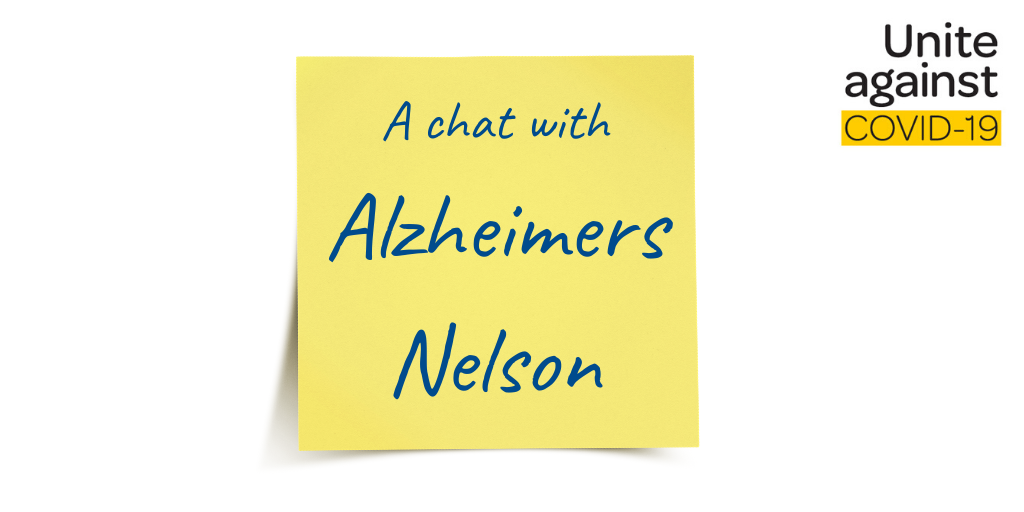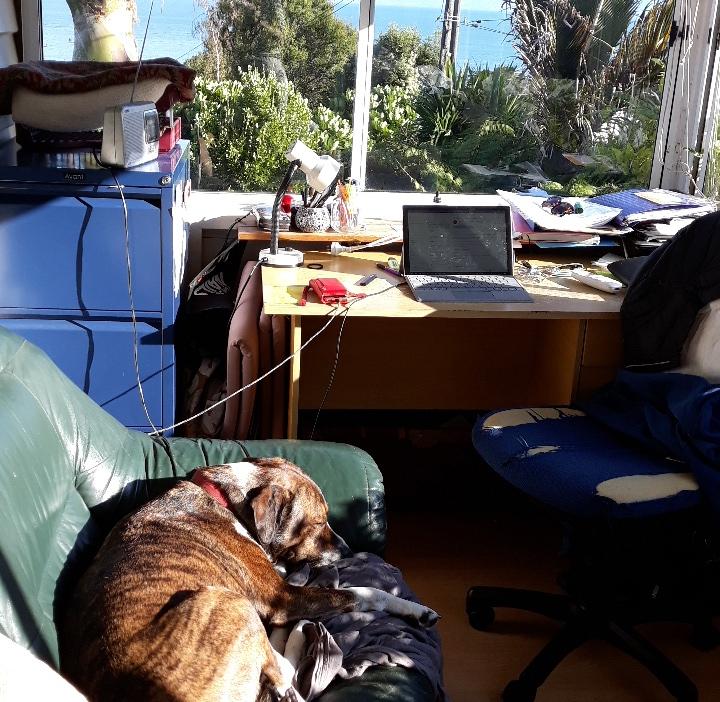A chat with Alzheimers Nelson
Here at Alzheimers Nelson, the outbreak of Covid-19 and the subsequent lockdown has meant we’re operating business as usual, but with an online twist.

We’ve been reaching out to the people living with dementia we support, finding out how best we can do this during this uncertain time. Dementia is different for everyone, the experience is so unique to each person, so it was important for us to find out from them what they needed.
We’ve also been keeping in regular contact with other organisations in our community so we can work together to strengthen our efforts.
Not being able to run face to face support in the form of groups or home visits leaves many of the people we all help in danger of becoming really isolated.
Which led us at Alzheimers Nelson to put our heads together and have a think about ways we might be able to help stop that from happening.
Taking support online
Sue, one of our Dementia Advisors, has been trialling some online support groups for care partners and memory groups for people living with dementia. After spending some time getting to grips with the technology, the feedback has been great. Here’s a picture of Sue’s desk (and dog Trixie) at home.

We’ve had quizzes, harmonica-playing, pet-participation and lots of reminiscing about other moments in history. We’re really looking forward to continuing with these, as they have been very uplifting for many of the people we support.
The groups have also been connecting via private Facebook groups, and some of the carers we support are ringing each other for regular check ins over a cuppa, which is great. Often, just having someone take a moment to ask, ‘How are you doing?’ can make someone’s day.
Taking our groups online has also opened up opportunities for others to join. The newest member of our carers support group is a lady in her eighties. Previously, she wasn’t able to attend the in-person meetings because she couldn’t find any respite care for her husband. But after spending some time on the phone with us and her son getting familiar with Zoom, she is really excited to be able to take part in our next meet up.
We are also very pleased to be thinking about ways we can take our Cognitive Stimulation Therapy (CST) sessions online, with the kind support of Dr Gary Cheung from the University of Auckland.
For both us and the people we support, it’s been about taking small bites of the ‘big apple’ of technology! We’ve been working hard to build the confidence of our community, and we’re also on that journey ourselves as a team.
And if we can make this new online space work, it’ll be great for the future, especially for supporting people in our rural areas. If we can do some visits online, that means we might be able to see five or six people in a day rather than the three we fit in around our long journeys out there.
We can and will get through this, but only if we work together
But back to today. We know this is a really challenging time for people living with dementia and care partners. And we can’t rely solely on online or virtual support because not everyone is confident enough, or has the technology to begin with. So we need to keep checking in in other ways and make sure everyone is supported through this time. There are tips on how you can do that safely here.
I hope that during the lockdown period, Kiwis are taking a moment to look around and see that older people and those living with dementia are among some of the most vulnerable members of our communities. And I am really encouraged to hear that many people living with dementia in Nelson, even in our most rural communities, feel that they are being well supported by relatives and neighbours.
But we’ve still got a long way to go on our journey through this outbreak. Many older people have already been in isolation for longer than the formal lockdown period. It is going to be a difficult and challenging time for people living with dementia – disruptive and confusing for the person with dementia and tiring for care partners who are not able to access services and respite. It’s also hard for care partners and families who are not able to visit the person with dementia in residential care, and this separation is often very difficult.
Making our way through this time has been a learning curve for all of us. I really do hope this renewed sense of community sticks around in Nelson, as and when this moment in history passes. We can and will get through this, but only if we work together.
Heather Lackner
Manager and Dementia Educator
Alzheimers Nelson

